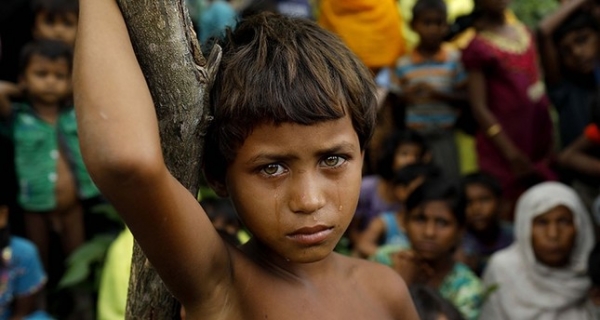25 November 2018
This is a presentation of “Report of the Secretary-General on children and armed conflict in Myanmar,” released by the UN Security Council on 29 October 2018.
The United Nations Secretary-General released a report detailing human rights violations in Myanmar against children that occured between 1 July 2017 and 31 August 2018. This report is the fifth of its kind that has been submitted to the Security Council’s Working Group on Children in Armed Conflict, with the last report being submitted in December 2017. The report was conducted using research on political and security developments in Myanmar and interviews with refugees from Myanmar in Bangladesh. These interviews were verified according to UN verification standards. Through this report, the Secretary-General is able to spread awareness of the grave violations of child rights occuring in Myanmar and provide recommendations for the consideration of the Working Group on Children and Armed Conflict.
The report focuses mainly on violations occurring in northern Rakhine State, an area of Myanmar bordering Bangladesh with a large population of Rohingya people, a Muslim minority. On 25 August 2017, the Arakan Rohingya Salvation Army attacked Myanmar police posts and an army base, resulting in a swift response from the Myanmar Armed Forces (Tatmadaw). This response resulted in attacks which continued for several months and destroyed Rohingya villages. By the end of August 2018, approximately 706,000 civilians left Myanmar and fled to Bangladesh, 90% of whom were Rohingya. Additionally, the government of Myanmar implemented movement restrictions on Muslims from villages and towns in central Rakhine.
In the reporting period (1 July 2017 - 31 August 2018), the UN documented 1,166 grave violations against children in the Rakhine State townships Maungdaw, Buthidaung, and Rathedaung. The report was framed through analysing the occurrence of the “six grave violations” of child rights in Myanmar. These are defined by the Office of the Special Representative for Children and Armed Conflict as the killing and maiming of children, sexual violence against children, recruitment or use of children as soldiers, abduction of children, attacks against schools or hospitals, and denial of humanitarian access for children.
Organized and systematic attacks against Rohingya civilians orchestrated by the Government resulted in the killing and maiming of children. Across 28 villages in the townships listed above, 220 child casualties were verified. Government forces, including border guard police and special forces, were found responsible for all of these verified cases. On 27 August 2017, several witnesses stated that Tatmadaw soldiers took men and boys from their homes in Buthidaung Township, forced them to lay on the group with their hands tied, and killed them one by one. The UN verified accounts of children being shot at while fleeing violence and attacks as well.
The Tatmadaw was also found responsible for raping and sexually assaulting girls and women in eight verified cases and two highly credible cases. The youngest girl reported to be a victim of sexual violence was 10 years old. One woman reported that her 14-year-old daughter was gang-raped by two Tatmadaw soldiers, while 10 or more other soldiers watched for approximately four hours. Her daughter was then shot in front of her.
According to the report, there were 53 verified cases of the recruitment and use of children as soldiers, with most cases being attributed to the border guard police and the Tatmadaw. The border guard police forced 47 boys, aged 10 to 17, to complete border guard police camp tasks including construction, maintenance, cooking, and cleaning. In some cases, boys were threatened, humiliated, fined, and forced to work all night. In Buthidaung Township, the UN verified the use of boys, aged 10 to 18, to move military equipment during operations.
In regards to the remaining grave violations - abduction of children, attacks against schools or hospitals, and denial of humanitarian access for children - the UN verified 11 attacks on schools by the Tatmadaw, documented widespread disappearance of children and abduction of girls by armed forces, and reported the systematic denial of humanitarian access and aid in northern Rakhine after 25 August 2017.
It is important to note that the report also includes instances of non-Rohingya children being impacted, as well as violations being attributed to non-government forces. For example, a highly credible report found the Arakan Rohingya Salvation Army responsible for the death of 99 Hindus, including children.
In light of the findings of the report, the UN Special Representative urges the Government of Myanmar to allow humanitarian actors and a country task force unimpeded access to conflict-affected areas. Additionally, the Government is requested to undertake a credible investigation for the presence and accountability of all six grave violations. The Special Representative also urges armed groups to halt the recruitment of children and to ensure accountability of non-State armed groups who have carried out grave violations of child rights.
Original report available here:







